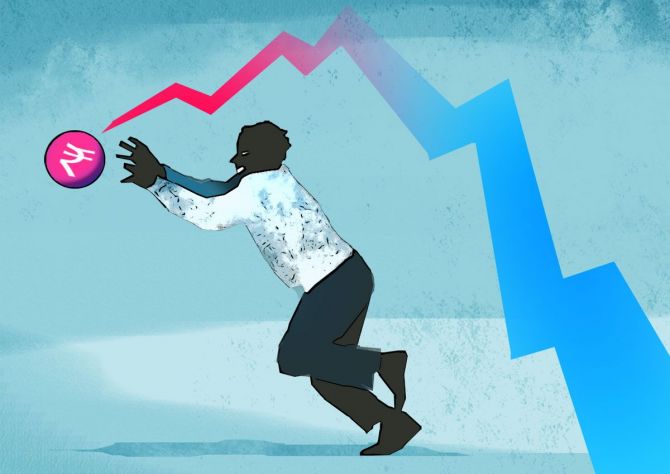The challenge isn't in selling -- it's easy to sell when the market peaks. The real challenge is in buying back.

Buy low and sell high -- isn't that the mantra for making money in the equity market?
The market is near all-time highs, so should you sell? As an investment advisor, I frequently encounter this question.
When a significant portion of your life savings is at stake, the question does not seem unfair either.
The possibility that the current notional gains might vanish in a market correction keeps many investors on the edge.
My usual advice is to resist the temptation to sell unless your asset allocation necessitates it.
A rising equity market can quickly push your equity exposure beyond allocation thresholds.
In such cases, there is merit in selling equities and reallocating the proceeds to the fixed-income portfolio. Otherwise, it's often best to sit back and relax.
However, investors often expect more cogent answers, so let's explore some of the other reasons as well.
Firstly, all-time highs are not uncommon. The Sensex didn't rise from 4,000 to 72,000 over the past 20 years without reaching new highs regularly.
In fact, between 2004 and 2023, the Nifty 50 touched new highs in 15 out of 20 years. The only exceptions were 2008, 2009, 2011, 2012, and 2016.
Therefore, the market hitting all-time highs alone shouldn't be a trigger to sell. Long-term investors would miss out on further gains by selling prematurely.
Secondly, the challenge isn't in selling -- it's easy to sell when the market peaks. The real challenge is in buying back.
Assuming the Indian economy and its stocks perform well over the next decade, you would want to maintain a diversified equity portfolio, provided your risk profile and financial goals allow it. When you sell stocks, you do the exact opposite.
Having sold, the challenge lies in buying back. If the market rises after you sell, you are unlikely to buy at higher prices.
Conversely, if the market falls, negative market commentary may discourage you from reinvesting until 'normalcy' returns.
Meanwhile, the market could suddenly rebound. You would be left behind, anchored to the lower levels you let pass. Not reinvesting is a big risk for long-term wealth creation.
This dilemma is akin to Abhimanyu's in the Chakravyuh -- he knew how to enter but not how to exit. In investing, we know when to sell but struggle with re-entry.
No investor is completely rational. Emotions play a role and must be managed. If the rising market causes both joy and concern, it is acceptable to sell a small portion of your equity portfolio, even if your asset allocation does not strictly require it.
The sale should be minimal -- enough to provide a sense of action and enable you to maintain your sanity without disrupting your long-term investment plan.
Now, the question is, what percentage of your equity portfolio should you sell? Five per cent seems a healthy compromise.
Before you sell, write down your reinvestment plan. Make this plan as mechanical and objective as possible.
The trigger to buy back could be a specific market level or a correction of 5 to 10 per cent from the current levels. Even if the trigger is complex, it should be objective.
Don't second guess when the buyback trigger goes off. Also, have a contingency plan if the trigger does not go off within a set timeframe.
Investing in the stock market involves battling with your emotions and biases. While you can't control the market's trajectory, you can control your actions.
Implementing rule-based decisions, like adhering to asset allocation targets and systematic investments, helps maintain discipline.
Remember, you are not competing with anyone. Contentment with your investments doesn't always require buying exactly at the lowest level and selling at the peak.
Deepesh Raghaw is a Sebi-registered investment advisor
Disclaimer: This article is meant for information purposes only. This article and information do not constitute a distribution, an endorsement, an investment advice, an offer to buy or sell or the solicitation of an offer to buy or sell any securities/schemes or any other financial products/investment products mentioned in this article to influence the opinion or behaviour of the investors/recipients.
Any use of the information/any investment and investment related decisions of the investors/recipients are at their sole discretion and risk. Any advice herein is made on a general basis and does not take into account the specific investment objectives of the specific person or group of persons. Opinions expressed herein are subject to change without notice.
Feature Presentation: Ashish Narsale/Rediff.com










